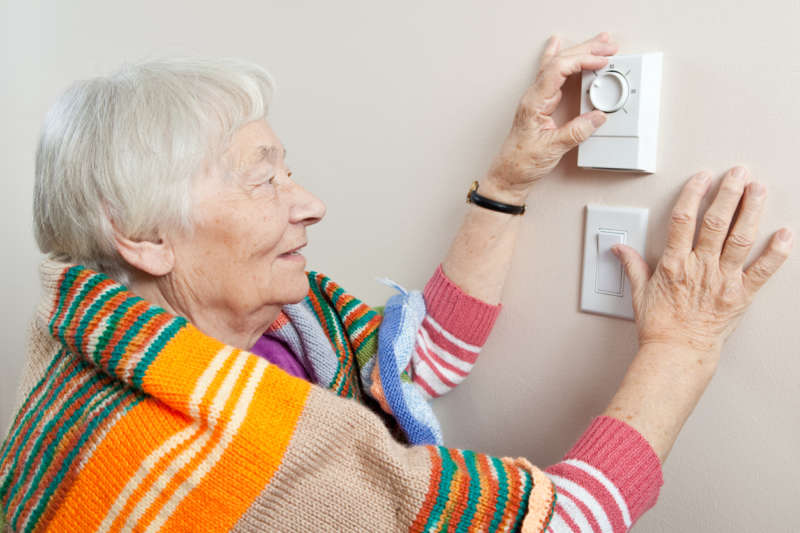
When you hear the word “hypothermia,” do you picture a frosty fisherman huddled over a hole in the ice, shivering in below-zero temperatures? It’s unlikely you picture a senior loved one tucked safely indoors. Could it possibly be that older adults are at risk for hypothermia too?
The cold truth is that elderly adults lose body heat at a faster rate than those who are younger, and hypothermia signs can quickly become evident. For seniors, if the body temperature drops to less than 95 degrees, it can cause a whole assortment of problems, from the liver to the kidneys to the heart and beyond. Older adults can even be put at risk from keeping the thermostat in the home at a setting that’s too low.
In addition, other health problems, such as Parkinson’s disease, arthritis, and hypothyroidism, along with some medications, can result in seniors becoming cold faster than they otherwise might.
The National Institutes of Health suggests the following to keep your elderly loved ones safe and warm during the cold winter months:
- Set the thermostat to a minimum of 68 degrees, and make sure the older adult dresses warmly, even while inside
- Ensure that sure seniors are consuming sufficient calories to maintain a healthy weight, since body fat offers additional warmth
- Encourage the elderly to stay away from alcoholic beverages during cold weather; alcohol makes it easier for the senior to lose body heat
- Discuss with the senior’s physician any medications he or she is taking – particularly those used to treat depression, nausea or anxiety, and any over-the-counter cold medications, which make the risk of hypothermia in seniors greater
It’s also crucial to keep in mind these hypothermia signs, and seek medical attention immediately if you suspect hypothermia:
- Look for hypothermia “umbles”: grumbling, mumbling, stumbling, or fumbling
- Body stiffness or shivering
- A weakened pulse
- Confusion or excessive sleepiness
- Slower reaction time and lack of control of body movements
For more assistance with making sure your older loved ones remain safe from hypothermia, contact Live Free Home Health Care of New Hampshire. Our expert home health care services give families a sense of peace in trusting that their senior loved ones are warm, safe and healthy.
You can call us any time at 603-217-0149 for help with running errands, picking up groceries and prescriptions, and more, allowing seniors to stay indoors when the weather becomes too cold, or to provide a friendly companion to come into the home and spend time with the senior, participating in favorite activities, exercise programs, memory stimulation games, and more. We can also provide a full range of skilled nursing services if extra care is needed. Let us know the specific needs of your senior loved one!
